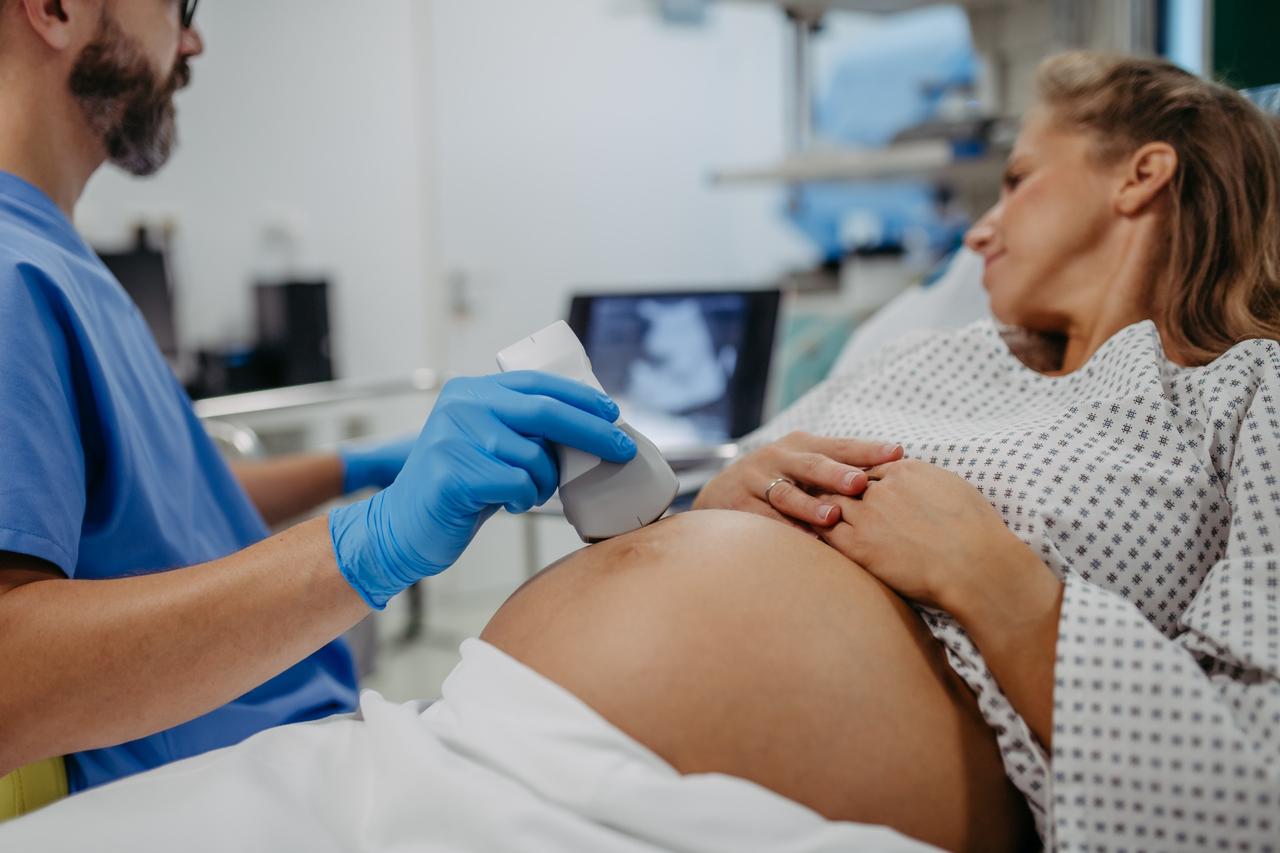What is Considered a High-Risk Pregnancy?

If you or your baby is more likely to develop health problems before, during or after delivery, healthcare providers consider your pregnancy high risk. Of course, that doesn’t mean you’ll encounter issues. The designation ensures that you and your baby get extra attention and close scrutiny of the complicating factors to protect your health.
This article explains what makes a pregnancy high risk, lists high-risk pregnancy conditions, and explains what’s involved in high-risk pregnancy care.
What Is a High-Risk Pregnancy?
If your healthcare provider has determined there may be issues for you and your baby, they’ll provide a high-risk pregnancy definition as it pertains to your health. Basically, high-risk pregnancies are those where specific factors increase the chances of problems developing with the mother's or baby’s health.
What Makes a Pregnancy High Risk?
Pregnant mothers and babies may require special care in some cases. The reasons for high-risk pregnancy are listed below.
Age
When it comes to high-risk pregnancy, age is one of the drivers of that designation. Pregnancies before age 20 or after 35 tend to have a greater likelihood of problems developing.
Lifestyle Choices While Pregnant
When people ask what causes a high-risk pregnancy, one answer is decisions made while pregnant.
- Drinking alcohol increases the risk of several fetal development problems.
- Cigarettes, vaping and smokeless tobacco pose significant dangers to babies.
- Most illegal drugs can cross the placenta, adversely affecting a developing fetus.
Past Pregnancy History
Experiencing a problem with a past pregnancy may increase the likelihood of it occurring again.
- Previous miscarriages or stillbirths can cause a pregnancy to be considered high risk.
- Prior preterm labor, meaning giving birth earlier than expected, is a cause for concern.
- A pregnancy is high risk if it follows the birth of a child with a genetic condition.
- Past pregnancy health issues, like high blood pressure, make a pregnancy high risk.
Medical Conditions
Your healthcare provider will consider your pregnancy high risk if you currently have specific health conditions.
- High blood pressure during pregnancy (preeclampsia) poses risks to you and your baby, including reduced blood flow to the placenta, which affects the baby’s growth.
- Being obese while pregnant increases the chances of several adverse outcomes, including gestational diabetes and labor and delivery complications.
- Having poorly controlled type 1 or type 2 diabetes increases the risk of issues like high blood pressure for you, and premature birth and congenital disabilities in your baby.
- If you have epilepsy and have seizures while pregnant, your baby can experience decreased oxygen availability, premature birth, low birth weight and other complications.
- Untreated thyroid disorders increase your risk of issues like preeclampsia, postpartum hemorrhage, etc., and your baby’s risk of brain development issues and others.
These are just some of the conditions your healthcare provider will address if present to protect your and your baby’s health.
Complications During Pregnancy
- Finding that the placenta is in an unusual location can result in a high-risk pregnancy designation.
- If a fetus falls below the tenth percentile for gestational age, the pregnancy is considered high risk.
- A pregnancy is deemed high risk if a mother’s blood group is Rh negative and the fetus is Rh positive.
Pregnancy With Multiples
Being pregnant with multiple fetuses increases the risk to you and your babies. People who have had fertility treatments have an increased chance of pregnancy with multiples.
Symptoms of High-Risk Pregnancy — When To Contact Your Doctor
If you develop high-risk pregnancy symptoms, it’s crucial to talk with your healthcare provider. These symptoms include:
- Severe or persistent headaches
- Vision changes or loss
- Dizziness or fainting
- Vaginal bleeding or unusual discharge
- Severe abdominal pain/cramping
- Leaking amniotic fluid
- Decreased fetal movement
- Fever or chills
- Chest pain or racing heartbeat
- Severe nausea or vomiting
- Burning sensation when urinating
- Thoughts of harming yourself or your baby
Find High-Risk Pregnancy Care at Baptist Health
If you’ve been told you have a high-risk pregnancy, it’s understandable to wonder, “What does high-risk pregnancy mean?” and “What qualifies as a high-risk pregnancy?” Your healthcare provider can answer those questions.
However, the key is to be aware but not worried. The Mother & Baby Care team at Baptist Health is here for you. They can explain what is considered a high-risk pregnancy and help you manage your pregnancy to protect your health and your baby’s.
If you are pregnant or considering becoming pregnant and don’t have a Baptist Health provider, visit our online provider directory to find one near you.
Next Steps and Helpful Resources
Maternal Fetal Medicine vs OBGYN: How do They Differ?
How Soon Will a Pregnancy Test Read Positive?
Fact or Fiction? Pregnancy Myths Answered
What Is a Chemical Pregnancy?



